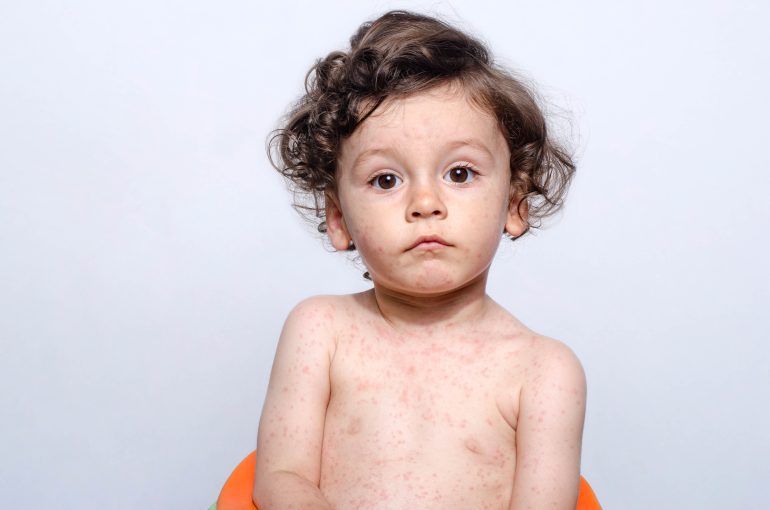The Netherlands is experiencing a troubling resurgence of measles infections, with health authorities reporting significantly more cases than this time last year. According to the National Institute for Public Health and the Environment (RIVM), 209 measles infections have already been reported in 2025, surpassing the total for all of 2024, when 203 cases were logged.
Though the RIVM has emphasized that there is no national outbreak, the pattern of infections – particularly clustered outbreaks in primary schools and in low-vaccination neighbourhoods – is cause for concern. A noticeable spike in cases has been observed in major urban regions such as Amsterdam, Rotterdam, The Hague, and South East Brabant.
In Amsterdam’s Nieuw-West district alone, 32 cases have been confirmed, up from 20 the previous week. Notably, several infections there are no longer traceable to a single school, suggesting a broader spread within the community. Four children have required hospitalization, though their current conditions remain unknown.
Alderman Alexander Scholtes voiced deep concern and launched an information campaign targeting families planning travel to Morocco, where a severe measles epidemic is ongoing with tens of thousands of reported infections and over 100 deaths. Similar advisories have been issued for travel to Romania, another hotspot for the virus.
Imported cases and local clusters
The rise in measles cases in the Netherlands is largely attributed to infections contracted abroad. At least seventeen of the current Dutch cases are linked to travel to Morocco, while three others have been traced to Romania. Once introduced into the Netherlands, the virus tends to spread within unvaccinated communities, especially among schoolchildren and within families. ‘These are mostly clusters,’ said Harald Wychgel, a spokesperson for the RIVM. ‘When multiple unvaccinated individuals are infected in the same school or household, the disease can spread quickly, but these clusters may also die out.’
In The Hague, 21 infections have been confirmed, with the majority of cases involving unvaccinated individuals. This reflects a broader trend of declining vaccination rates in some parts of the country, notably in religious communities and urban neighbourhoods with many people who are not highly educated.
A preventable but dangerous disease
Measles is one of the most contagious diseases known. The virus spreads through coughing, sneezing, and even talking. According to epidemiologist Alma Tostmann, just one infected person in a vulnerable community can lead to 20 new infections. Children under five are particularly at risk of complications, including pneumonia, encephalitis and even blindness. Although most measles cases resolve on their own, complications can have long-lasting effects. ‘Even after recovery, the immune system is weakened, making individuals more vulnerable to other infections,’ Tostmann added.
Despite the danger, measles is entirely preventable through vaccination. The MMR (measles, mumps, rubella) vaccine is highly effective, offering 99% protection after two doses. This is offered for free to all Dutch children at 14 months and 3 years of age. Yet, as vaccination rates fall below the WHO-recommended 95%, outbreaks become more likely.
While a large-scale outbreak is unlikely in the immediate term, the trend of small recurring clusters is likely to continue. ‘We expect a major outbreak before the end of the decade,’ Tostmann stated.
Authorities respond
The Dutch government is taking the situation seriously. State Secretary Maarten Karremans has called for strengthening neighbourhood-level vaccination outreach. ‘I do not want to accept that a disease like measles will increasingly emerge in 2025. That would undo decades of medical progress,’ he said.
Cities like Amsterdam and Rotterdam are implementing proactive campaigns. In some neighbourhoods, mobile vaccination units are being deployed, and additional information is being shared with families ahead of school holidays and travel periods.
What to do if exposed
The RIVM advises anyone who is unvaccinated and exposed to measles to stay home and contact their GP by phone, not in person, to avoid infecting others. Vulnerable individuals – including babies, pregnant women and immunocompromised people – should not be exposed under any circumstances. If siblings are unvaccinated, they should remain at home to help contain the spread.
For those who missed the MMR vaccine as a child but now wish to be vaccinated, appointments can be made via the local Youth and Family Centre (JGZ). Adults born between 1965 and 1975 who are uncertain about their measles status can consult the GGD, where an antibody test can determine whether vaccination is necessary.
As the Netherlands approaches the spring holiday season, with increased travel and large gatherings, health officials urge citizens to check their vaccination status and take preventive measures to protect themselves and others from this potentially serious illness.
Written by Priyanka Sharma
